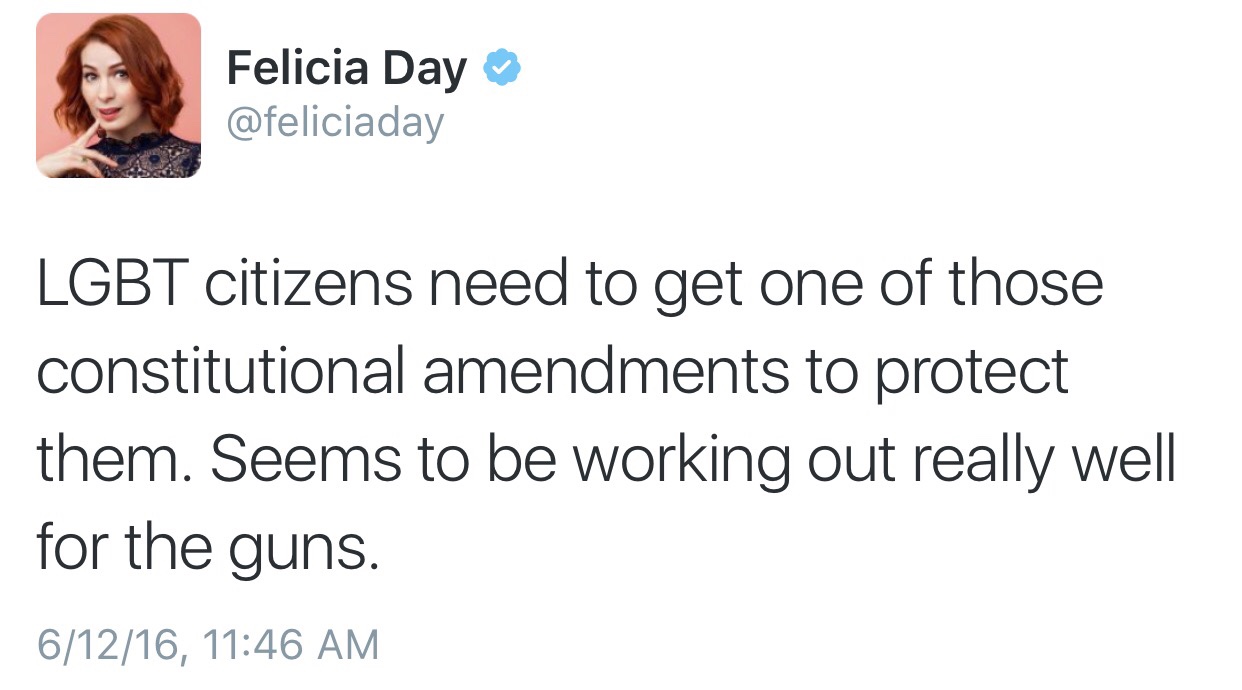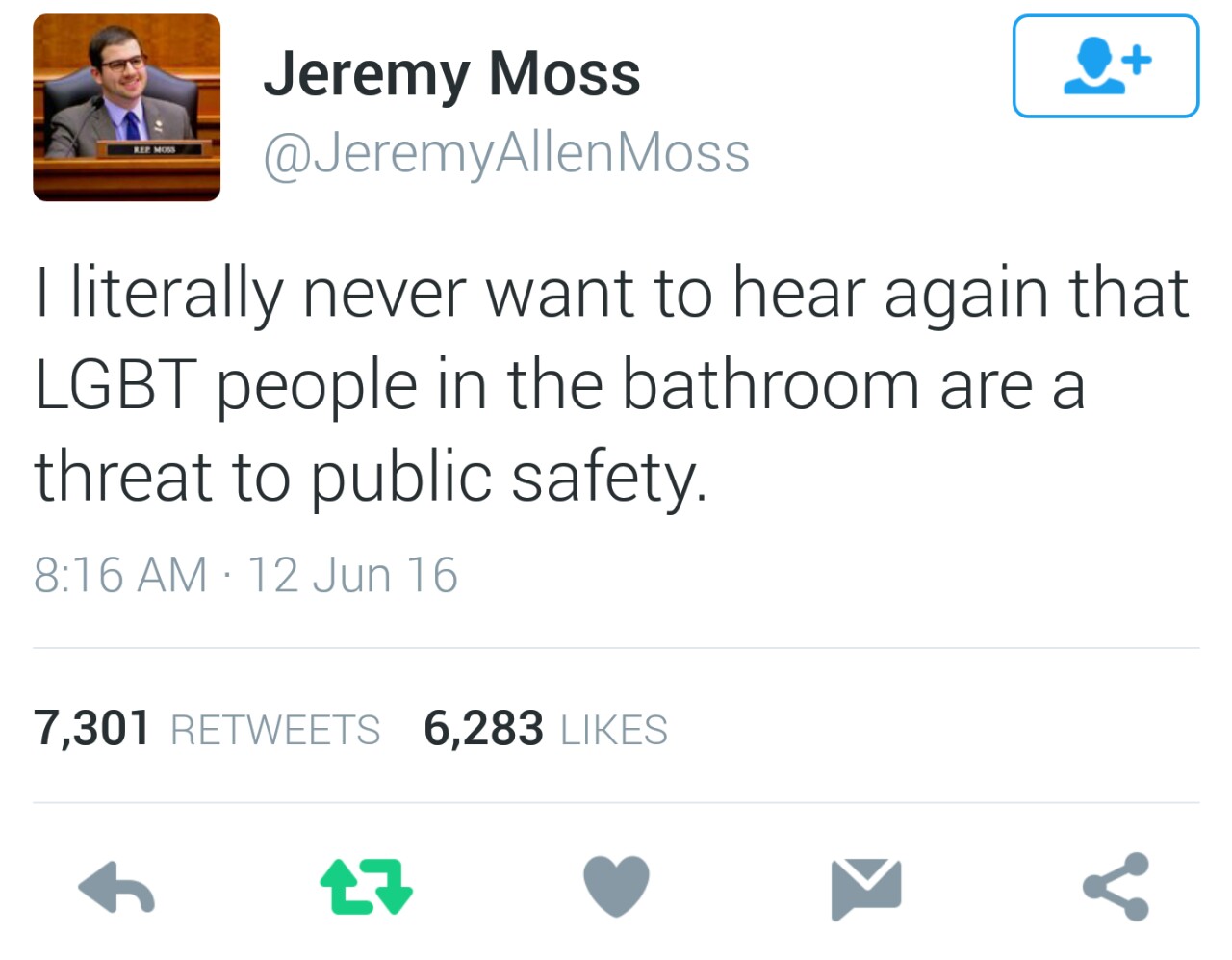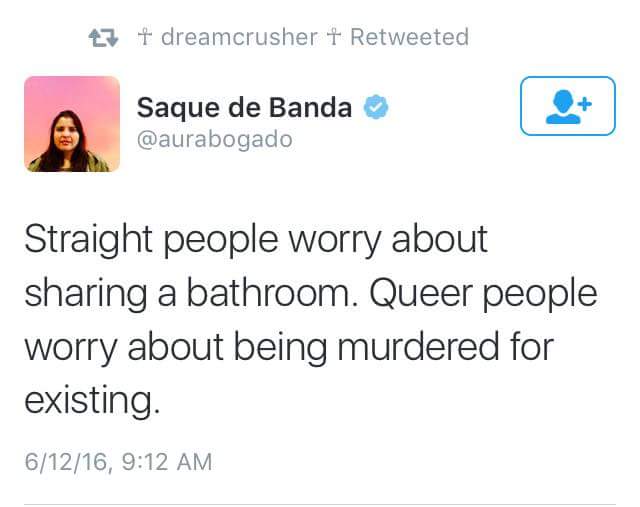Reflecting on Orlando
/Nate Pentz
“What transpired in Florida is “not going to tear our community apart; we are going to continue to come together, and build together and continue to organize and to end all of this violence that’s happening because we know it’s not just about gun violence,” said Jorge Gutierrez, passionately.”
My first year of college, the first year I lived out of the closet, news was centered on marriage equality and the unstoppable wave of progress. Less than a month after I finished my first year Pennsylvania legalized same-sex marriage. The summer after my second year marriage equality was nationwide. Discussions among campus groups often centered on what was next and how we, as a community, could avoid becoming complacent after large victories that certainly did not mean the end of the road. Recalling those conversations brings up almost a bitter taste in my mouth. We were very right in many ways, and in others we were so, so wrong. It was never conceived that the largest mass shooting would occur in a gay nightclub, and it was not thought that the toll could be so high.
I have experienced privilege in many ways. Being white I hold a great deal of privilege, and I have not encountered large problems because of my sexual identity. In times like these I want to convey my own feelings about the shooting while boosting the voices of those who were victimized and their communities. I am still coming to terms with the shooting and what it means for the queer community. This process has taken a toll because, for the first time, I have been afraid to be who I am, I have been afraid to attend a queer event, I have been afraid for my life. I am also angry that this event has barely been properly recognized by most news stations and that it only seems like violence against queer people is increasing and nobody outside of the community cares. I have committed my college career and more to LGBT issues, but now I feel like I have no real power to enact change.
I am also very confused on where to go from here and what the community could do. This was not in the dialogue at Penn State. For Pennsylvania, workplace discrimination protections and hate crime laws have moved nowhere in years. If this happened in my state it wouldn’t matter that the news broadcasters are hesitant to admit that it was a hate crime; it wouldn’t even be legally classified as a hate crime.
This blog is serving as a means for us to document our own experiences at the Center and around Philadelphia, as well as highlighting news stories over the summer. The Orlando shooting is dominating news currently and there are many voices speaking on the issue, but I believe that this article, “Queer Latinos After Shooting: 'Mi Existir es Resistir',” boosts the voices of queer latinxs and summarizes how the entire community feels about this incident.
Read the full article, "Queer Latinos After Shooting: 'Mi Existir es Resistir'," here http://bit.ly/1Q1RgGE
In the article those interviewed talked about their identities as queer and trans latinx people, as they gathered in the New Jalisco Bar in Los Angeles. They talked about community spaces and safe spaces and why these are important to them. A message I've seen many queer people try to convey about this incident is that there is a disconnect with the greater American community about why bars are so important for queer people.
“‘Sitting here in the New Jalisco Bar, which for me as a queer and trans Latinx, it becomes very real for me that these are our community spaces,” Esperanza said. “Often as queer and trans people, but especially as queer and trans people of color, we don’t have spaces to come together in community, so clubs and bars have been so important to us, where we can be around people that look like us, that live like us.’ ”
“‘These clubs are sanctuaries for us,” said community organizer, Jorge Gutierrez. He doesn’t show up to Jalisco just to dance, he said, but rather, he sees it as a space “where a lot of us can be our true selves.’”
One can also see a questioning of safe spaces and whether there can truly be one, Johnny Pimentel, age 19, comments on this in the article.
“Johnny Pimentel, 19, was invited to the event at Jalisco by his friend, the organizer, Esperanza. They have a hard time believing safe spaces exist, especially as a person who identifies as nonbinary and uses the pronouns they/them, because they face the threat of violence every day when going outside at night wearing makeup or dressing “a certain way.””
And highlighted in the article is the moment where the exact issue Pimentel is discussing materializes itself as if cued.
“In the process of getting interviewed outside the bar about whether Pimentel felt safe going to gay spaces in the future, given what took place in Orlando, a man walked by, mocking them, and repeated the phrase “gay bars,” in a sarcastic tone, scoffing, before walking away.”
And finally, perhaps the most prominent message of the article is the need for queer voices of color to be brought forward and to be heard. The issues that these communities face are too often ignored or forgotten but if we are to be one community we cannot allow that to happen.
“Jorge Gutierrez, of Familia, said he hopes people don’t erase the identities of those who died. “One thing to remind ourselves is that this is a moment; the stories, the narrative, the voices need to be centered around the LGBTQ Latino and black communities.””
Donate here (Florida Equality): https://www.gofundme.com/PulseVictimsFund
(GLBT Community Center of Central Florida): https://www.gofundme.com/orlandounited






